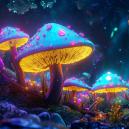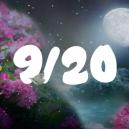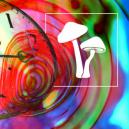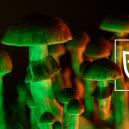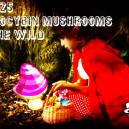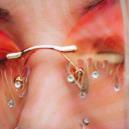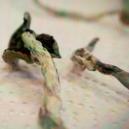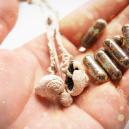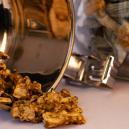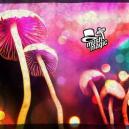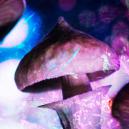How To Make The Most Of Your Magic Mushroom Trip
Published : December 10th, 2018

Magic mushrooms are now being explored for their potential to treat psychological issues. If you want to see how a mushroom trip could benefit you, be aware of how important it is to achieve the right set and setting. Here is our guide to making the most of your magic mushroom trip!
People trip on magic mushrooms largely due to a chemical known as psilocybin. Once this psychoactive prodrug is ingested by the body, it catalyses an incredible range of psychedelic effects. These include greater sensitivity to sensory input, distortion in perception of time, and hallucinations. Amidst all this, repressed emotions may come to the forefront of one's mind. But under the right conditions, there can be closure or an important personal revelation during a mushroom trip. Some have even gone as far to describe spiritually profound experiences while on psilocybin. This may explain why certain cultures throughout the world have rituals around consuming their local variety of Psilocybe mushroom.
There may even be moves toward incorporating psilocybin into the treatment of depression. In the United States, the FDA has approved clinical trials for psilocybin. More research is available than ever before. Much of it has now been compiled in Michael Pollan's new book “How to Change Your Mind: What the New Science of Psychedelics Teaches Us About Consciousness, Dying, Addiction, Depression, and Transcendence”. If you would like to see whether psilocybin could help you, a number of factors come into play. Let's explore some ways to maximise the potential for a positive experience with psilocybin.
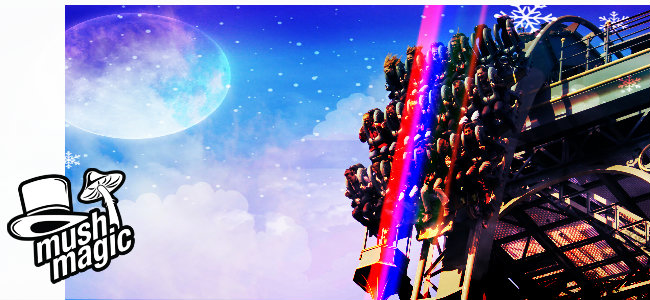
A PERSONAL ACCOUNT OF WHAT NOT TO DO
This writer has a personal experience with mushrooms that should serve as a guide of what NOT to do. A friend arranged to meet me with mushrooms one morning after I had eaten a large breakfast. After smoking cannabis with them, I then took a small dose of mushrooms. We then headed to a theme park. After going on a few high-velocity rides, I felt dizzy and disoriented with heavy queasiness in the stomach. When we found a discreet place in the fresh air, I vomited up my morning's breakfast. When I got home, I stayed in bed for the rest of the day, with heavy feelings of sadness, hopelessness, and discomfort.
My first experience on mushrooms was facilitated by someone who did not advise me on proper precautions. Eating a heavy meal first was not a good idea. There should be minimal demands on your digestive system during a mushroom trip, and one should abstain from combining mushrooms with other drugs, for it interferes with their effects. Certainly do NOT go to a theme park or any loud, overwhelming place. Some music festivals may have designated chill-out areas that would be an appropriate location. But going on amusement rides was just idiotic of me.
Remember that one becomes much more sensitive to sensory input. The intense experience of any strenuous physical activity could trigger a spiral of negative thinking, as it did for me. This friend made it up to me next time by taking me on a hike into the forest. When we ate mushrooms there, it was a far more pleasant, serene experience. Let us explore the exact reasons for this.
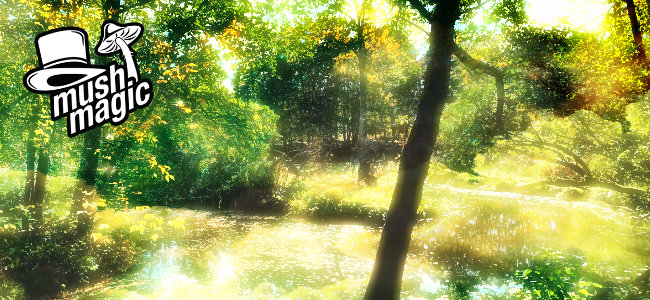
SET AND SETTING
Experienced users will tell you that "set and setting" are crucial to get it right. The "setting" refers to the physical location you will be in during your trip. You are going to need to clear your schedule, as the effects of mushrooms can last up to 6–8 hours. The ideal setting is somewhere not too bright, quiet, and comfortable. You will want to wear comfortable clothing and have a soft place to sit or lie down. There should be minimal disturbances from the outside world in order for you to really focus on the psychological impact. A tranquil setting in nature, such as a forest or quiet beach could also be acceptable, as long as you have sober company.
Having someone sober present to act as a "tripsitter" is advisable. They should be able to get you things or reassure you if you feel panicked. They will also keep you safe in the rare event you do something clumsy that could hurt yourself. This will improve your chances of having the right "set" throughout the process.
"Set" refers to one's mindset when taking mushrooms. While some users take mushrooms to process difficult emotions, one should be in a relatively calm state of mind before beginning. If you are feeling unhappy at the beginning of a mushroom trip, there may be a negative thought spiral. It's better to time it after a few peaceful days of no drug consumption. That way, your mindset will be more open to a positive experience.
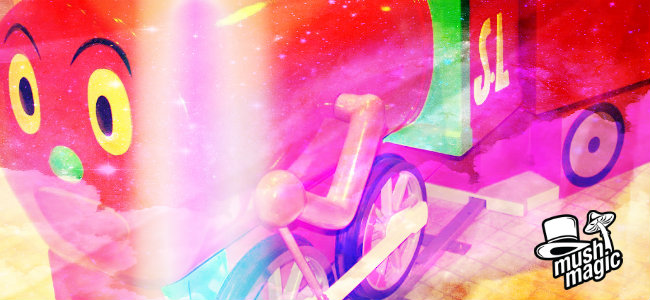
ENHANCE THE EXPERIENCE
If you have close friends you can trip in the company of, it will be easier to trust the process. It may feel challenging at times, but try to stay focussed on the present moment and on deep, regular breaths. Only follow a train of thought if you find yourself demolishing negativity through reasoning. Getting lost in your thoughts could increase the potential for distress. We advise beginning with a low dose of around 1 gram. Depending on your reaction, you could work your way up on subsequent trips to a maximum of 4–5 grams. Overdosing beyond that is not going to be fatal, but can be extremely unpleasant.
There are a number of things you can do to enhance your experience. Have water readily available; practice a form of meditation; read a book or try writing something yourself. If you find yourself drifting into hallucinations, know that this is just a chemical reaction in your body that will pass. Trusting the process will be a lot easier if you trip with a specific intention in mind. For example, if there is a particular insecurity bothering you, keep it on your mind with the aim of calmly coming to terms with it or discovering what actions could resolve it. Even if the trip doesn't go well, there are lessons in every “bad” trip. I certainly learnt them.
So don't be afraid to try shrooms at least once. If it works for you, it can be a way of expanding your consciousness and becoming more in touch with yourself and all mankind. Just make sure you take sensible precautions, particularly staying hydrated and doing it in the company of those you trust.
INTENSIFY THE TRIP
If you find yourself getting a lot out of mushroom trips, you can revisit the experience. Now that you are somewhat experienced, it is possible to intensify the trip and lengthen its duration. If you have become comfortable with the process, you can make the decision of whether you want to trip alone or with others. This in itself can be an intense experience as no one will be there to help you. But if you have demons to face, you can bring them to the surface in isolation, knowing that the trip will pass. Try the darkest, quietest setting you can. Without much external stimuli, you can really explore the nature of the mind within. We would again stress that this is for people with strong self-assurance and experience with psychedelics.
You can also stimulate a more intense trip via certain stimuli. Have a playlist of ambient chillout music ready. Just be very selective about tracks that don't take abrupt emotional turns. If you are playing music, use a device that's just for music—nothing that will interrupt you with notifications or messages of anything. You may even consider the icaros chanting used in ayahuasca ceremonies. Ayahuasca is a much more powerful psychedelic, combining DMT and MAO-inhibitors. The soothing music used in such ceremonies could have interesting effects on psilocybin.
In terms of physical preparations, drinking citrus juice such as lime or lemon will boost the properties of magic mushrooms. Organic dark chocolate could also be a suitable pairing. It comes with mood-boosting chemicals of its own, which may help prevent a trip from turning negative. In general, small amounts of nutritious superfoods should make your trip last longer.
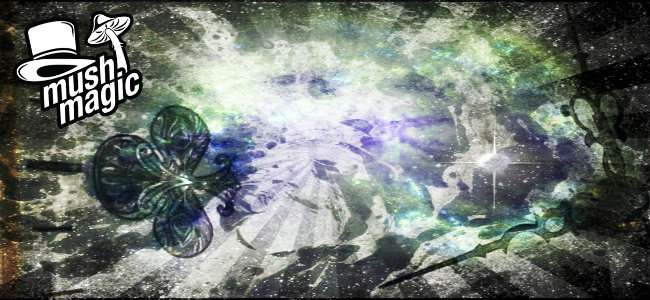
PERCEPTION OF TIME
Keep in mind that while you may want your trip to last longer, your perception of time will feel distorted anyway. In rare cases, you may experience an ego death where your mind focusses solely on physical stimuli. This can be a scary experience, but it will pass. The deeper you get into your thoughts, the more opportunity you have for profound realisations. You may choose to converse with a perceived spirit while under the influence of psilocybin. Just be careful not to over-emphasise its presence as this could lead to psychological problems. However, science shows that this is just a temporary chemical reaction to the brain's exposure to psilocybin.
MAKING AN ALLY OF THE BRAIN
There is a way to avoid this problem of externalising one's thoughts onto a mythic entity. In Mike Weeks' book “Un-Train Your Brain”, he outlines a method for making an ally out of your subconscious, among other self-help exercises. This can be done with or without the influence of substances. Try the following technique during a mushroom trip in a dark environment with no distractions:
- Lie still and internally ask your unconscious mind if you may communicate. Ask for a signal that means "Yes".
- Continue asking for such a signal until you feel an involuntary movement, e.g. finger(s) twitching, a “butterflies” sensation in the chest/stomach, etc.
- Try to consciously repeat whatever movement you experienced. If you can, this is not a signal from your unconscious mind and you should continue calmly asking for one.
- If you find you cannot consciously repeat the sensation, ask your unconscious mind to intensify the signal. If this happens involuntarily, you have discovered your unconscious mind's signal for "Yes". Thank your unconscious mind for its cooperation.
- Repeat steps 1–4 in search of a different signal for "No".
- Once you have a signal for "Yes" and a signal for "No", you may begin to ask your unconscious mind questions. These questions must have Yes or No answers. For instance, "Is there any behaviour you want me to change that exists outside my conscious awareness?"; "Are there actions I can take to become more assertive?"; "Will pursuing [a goal] lead me towards happiness?" etc.
- If the answer to any such question is "Yes", ask your brain if such changes will lead to positive effects in all areas of your life.
- If the answer is "Yes", ask your brain if it has the resources to help make these changes and if it can start making them now.
- If any response is "No", rephrase one's question to its simplest form, or ask if it has another way to foster positive outcomes.
By sticking to Yes or No questions, you may come to revealing insights during a trip that lasts longer and has more positive impacts. Experiment, but proceed in moderation.



